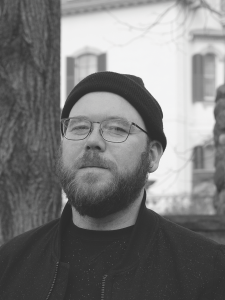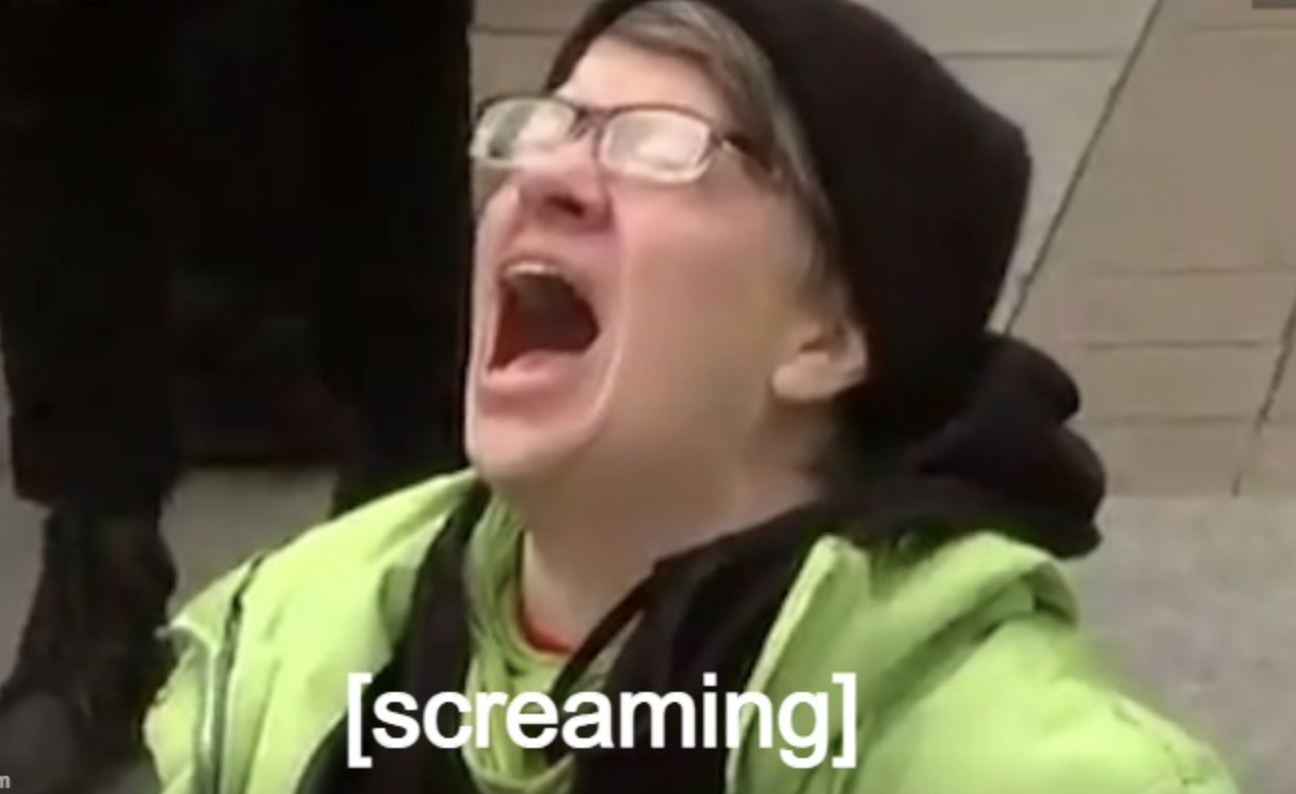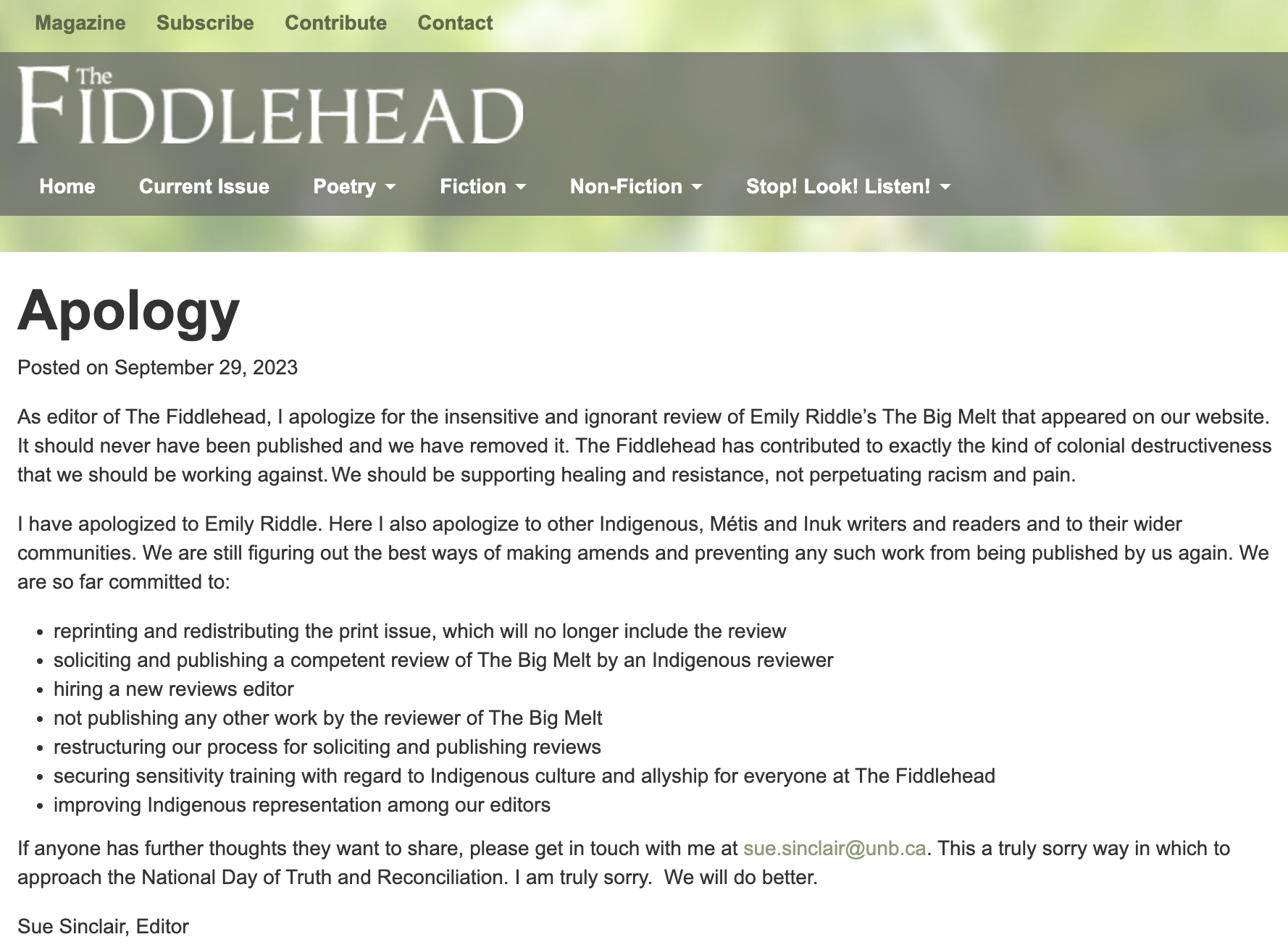JC Bouchard‘s collection of poetry and photographs, Let This Be The End of Me, was published by Bad Books Press in spring 2018. His poetry is forthcoming in CAROUSEL, and has appeared in carte blanche, PRISM international, Arc, The Puritan, and more. He lives in Toronto.
How is chapbook publication different from book publication? How many copies are printed? How are they distributed? Where would I find your chapbook for sale? If the first printing sells out, can another run be arranged quickly? Is this common?
I’m not sure there is much of a difference. My experiences with publishing chapbooks and my recent book were very, very similar. I wrote each, worked on them with my editors to polish the final text, then worked with the publisher for the cover design. I can imagine there are some major differences when publishing a novel with a big press, but I am just not there yet and probably never will be.
My book has gone through 2 printings. The first printing was 75 copies in full colour (for the photos), and I think the 2nd printing was the same amount (maybe less).
The books were distributed through the publisher’s online store, readings, and book launches. They’re also available at the stores Drawn and Quarterly in Montreal and Knife Fork Book in Toronto. Other than that I sell them through one-on-one hustling and word of mouth. I also did a reading tour in April with other poets that helped get the book into more hands in other regions throughout Ontario.
I don’t imagine it’s very difficult to get additional printings done quickly, as long as there are no changes from the original. The 2nd printing seemed to be done in the relative short time it took for the printers to fulfill the order. As for common, I can imagine this depends. Some books can go into 2 or 4 printings depending on popularity and other factors, probably the most important being how much money the press wants to spend.
What was your experience publishing with Hybrid Heaven Press? Did they aggressively promote your book? What did they expect from you?
Publishing with Hybrid Heaven (now known as Bad Books) was a dream. They gave me incredible freedom to write what I wanted and the support to make my vision of the book a reality. They took care of the pragmatics like organizing launches and readings, interviews, and making sure I had what I needed, whatever that was. They always communicated. I don’t think I could have asked for a better experience. They promoted the book the best they could and I have no complaints. I got really lucky.
They also put their money where their mouth is. They spent more money to print my books in full colour in order to display the photographs in the best quality possible. To them it wasn’t even a question—they simply did it which isn’t easy to do financially as a young press. To me this was a clear indication of what kind of press and people I was working with.
Your latest book, Let This Be The End of Me, was published with photos. The photos on your website look like studies of texture without context, with a close focus and obsession with detail that reflect how a poet might see the world. If you look at something closely, deeply, for long enough, traditional meaning begins to break down. Does any of that resonate, or did I just pollute the page with artspeak jibber jabber? How would you describe your photography? Is there cross-pollination between photography and poetry? Does one activity aid the other?
The aim of the street photos is to show the places in a city that I think most people never notice, and if they do, I don’t think many people see them within the context of visual art. Almost everywhere I go I see an intensely strong aesthetic within Toronto’s hidden parts—graffiti removal, construction, general urban decay. And it’s all “accidental.” The photos depict things that are not purposefully constructed or set, which to me is the most striking. The settings are all completely natural, the products of a city’s normal movement and years of transition.
A relationship between poetry and photography doesn’t always exist. It depends on the purpose of each. In the case of Let This Be The End Of Me, I knew there was a connection between the emotions of the text and the aesthetics of the photos, and so the idea to combine them was natural to me. It just felt right. But I don’t believe that connection is always inherent.
Based on your extensive experience with readings, what advice do you have for novice readers? Describe the good, bad, and ugly aspects of your average reading.
Take all of those nerves and use them to express the poem, however that may be. Speak up into the microphone. Own the stage because it’s all yours for a brief time. Speaking of time: don’t ever go over the limit if you can help it, especially at open mikes. If the host gives a limit of 5 minutes or one poem, then don’t read your 5-page poem or long short story. It won’t do you any good and it kind of annoys people. All in all, despite what advice I have to give, never do anything because you saw some poet do it, and never do anything that doesn’t feel right to you. Always listen to your gut.
Readers make the readings. My favourite readers are those who have a clear intention with their performance. Some want to be funny, some strange and disorienting, and some just want to read their poem with power and clarity. And so they do their best to do that in their own, unique way. My least favourite readers are those who think that readings are just going through the motions until they get people to read the book. If a reader isn’t interested in giving it their all, then I am not interested in giving my full attention.
On the League of Canadian Poets blog, you wrote about your travels, specifically the time your bus broke down two hours out of San Francisco. At the time, you chose not to write about it, thinking you might “betray the moment” if you tried to capture it on paper. I feel the same way about photography. If you’re trying to get the shot, worrying about lenses and angles and light, to some extent, you’re not really there. Not fully. You become an accessory to the camera, moving, thinking acting for its benefit. Over the years, have you refined the delicate balance between being in the moment and documenting the moment?
I don’t think I have refined it. I still feel the same way now as I did then in the desert. Most of the time I am not even aware that there is a balance. For me, poetry will always take a backseat to my actual life in any moment. Poetry isn’t life and neither is art. I have nothing against “writing in the moment” but it’s never been my first instinct. I’d rather let things sink in and if a particular thought or feeling of something doesn’t go away then I know it’s worth writing about, otherwise it’s just another part of my life, which is enough.
Where is the craziest, wildest, fringiest open mike in Toronto? Are open mikes declining in popularity because they are uncontrollable? Is a diversity of world views a threat to a reading host when the range of allowable expression has begun to narrow significantly?
There used to be a reading series run out of The Central called Outrageous that was the most subversive reading in Toronto. It was a force to reckon with because it hated any established status quo in the literary scene and cultivated nothing but insanity from the performers and audience members. It never took itself too seriously, which was the point. It sort of spat in the face of the “traditional reading.” But it stopped running a few years ago.
My favourite one now is the Sophisticated Boom Boom running out of The Ossington. They consistently attract some the best open mikers, invite an eclectic range of features, and always have an amazing crowd. You’ll never see the same show twice. I see faces there that I never see at any other reading or series. My favourite series are the ones where the audience is not made up of just other poets and writers, and I think the Boom Boom facilities that kind of atmosphere. I also think they strongly support new, upcoming readers and performers.
Who has been most helpful in your development as a writer?
Steve Albini and JM Francheteau.
What has been most effective in the promotion of your work?
Readings and performances. Readings have changed my life. Social media in general is a close second, but similar to a touring band, a live reading has always been my best tool to promote my books. Poets should never underestimate the importance of readings. In many cases it’s peoples’ first introduction to your work. Treat your readings with the same respect as the work itself.





Leave A Comment